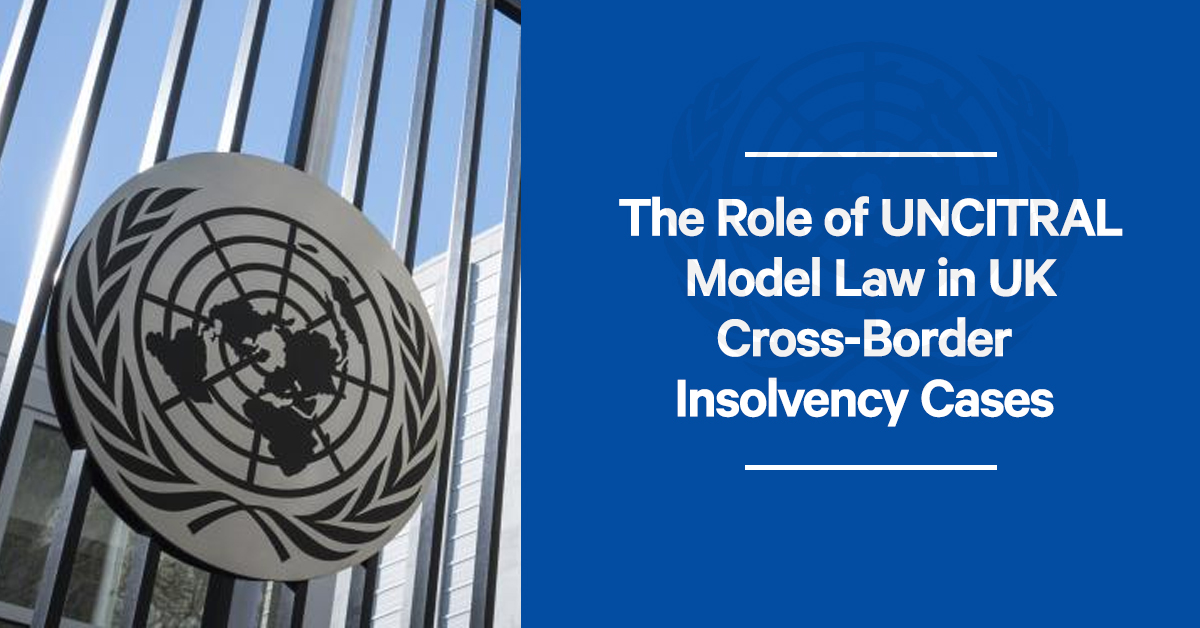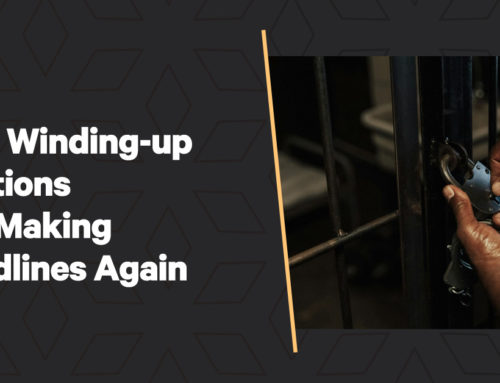Insolvency and liquidation can be complex, and the global landscape often requires a nuanced approach to address cross-border challenges. The United Nations Commission on International Trade Law (UNCITRAL) Model Law has emerged as a crucial framework, providing guidelines for the recognition and enforcement of insolvency-related judgments in different jurisdictions.
Insolvency, representing a financial state where an entity struggles to meet its obligations, initiates structured proceedings aimed at equitable debt resolution and creditor protection. Following insolvency, the legal process of liquidation systematically sells assets and distributes proceeds to creditors. This complexity is heightened even further in cross-border scenarios, where entities operate across multiple jurisdictions. The UNCITRAL Model Law, integrated into the UK’s legal framework, emerges as a pivotal tool for navigating these intricacies. It ensures the recognition of foreign insolvency proceedings, helps with coordination between courts in different jurisdictions, and guarantees a fair and efficient resolution.
As we travel across this multifaceted financial landscape, the intertwining of insolvency, liquidation, and cross-border intricacies underscores the need for a global framework like the UNCITRAL Model Law. This framework not only aligns with the UK’s commitment to international cooperation but also positions the country as a leader in addressing the challenges posed by complex cross-border insolvency cases in the modern global economy. This blog will delve into the specifics of the UNCITRAL Model Law and its pivotal role in handling cross-border insolvency cases within the United Kingdom.
Understanding the UNCITRAL Model Law
The UNCITRAL Model Law on Cross-Border Insolvency, adopted in 1997, represents a harmonised and universally accepted legal framework. Its primary objective is to facilitate the resolution of cross-border insolvency issues by promoting cooperation and coordination between different jurisdictions. The Model Law aims to provide a more predictable and efficient process for dealing with cases involving entities with assets or creditors in multiple countries.
Applicability in the UK Context
In the UK, we have a robust and well-established insolvency framework; the UNCITRAL Model Law is a valuable tool for navigating the complexities of international insolvency cases. Its incorporation into the UK legal system has boosted our ability to handle cross-border insolvency matters with clarity and efficiency.
The key strength of the UNCITRAL Model Law lies in its ability to offer a recognised and uniform approach to the recognition and enforcement of foreign insolvency proceedings. This consistency is vital when dealing with intricate cross-border issues, as it provides a structured framework for communication and collaboration between courts in different jurisdictions.
Recognition and Assistance: Core Principles
One of the fundamental aspects of the UNCITRAL Model Law is the principle of “recognition and assistance.” The Model Law allows a foreign representative, appointed in the primary insolvency proceeding, to seek recognition in other jurisdictions where the debtor has assets or interests. This recognition empowers the representative to act in those jurisdictions, facilitating a coordinated and consolidated approach to the insolvency process.
In the UK, the recognition of foreign proceedings under the UNCITRAL Model Law streamlines the often complicated process of dealing with cross-border insolvency cases. The Model Law provides a clear mechanism for foreign representatives to apply for recognition, for a more efficient and transparent resolution of complex international insolvency matters.
Coordination of Parallel Proceedings
Cross-border insolvency cases often involve parallel proceedings in multiple jurisdictions. The UNCITRAL Model Law addresses this by promoting communication and coordination between courts in different countries. The principle of cooperation is crucial in avoiding conflicts and ensuring a coherent and synchronised approach to resolving insolvency matters.
The adoption of the UNCITRAL Model Law has proven instrumental in facilitating communication between the local courts and foreign representatives in the UK. This coordination speeds up the insolvency process and minimises the risk of conflicting judgments, providing a more stable and predictable environment for all stakeholders involved.
Protection of Creditor Interests
Creditor interests lie at the heart of any insolvency proceeding, and the UNCITRAL Model Law recognises the importance of safeguarding these interests in cross-border cases. By providing a framework for the recognition of foreign insolvency proceedings, the Model Law ensures that creditors have a clear and established path for asserting their rights in different jurisdictions.
Creditors benefit from the predictability and efficiency offered by the UNCITRAL Model Law. The recognition of foreign proceedings allows creditors to participate in the insolvency process without the hurdles of navigating complex legal systems in various countries. This not only protects creditor interests but also contributes to the overall fairness and integrity of the insolvency proceedings.
The Future of Cross-Border Insolvency in the UK
As the global economy evolves, cross-border insolvency cases will become more frequent and intricate. The UNCITRAL Model Law, firmly integrated into the UK legal framework, positions the country as a leader in addressing the challenges posed by these complex scenarios. Its principles of cooperation, coordination, and creditor protection provide a solid foundation for handling cross-border insolvency matters with efficiency and fairness.
The principles of the UNCITRAL Model Law align with the UK’s commitment to international cooperation and the fair treatment of all stakeholders involved in insolvency proceedings. By understanding and embracing the UNCITRAL Model Law, the UK reinforces its position as a jurisdiction well-equipped to navigate the complexities of the modern global economy.
Are you facing cross-border insolvency challenges? Our expert team at Leading UK is here to guide you through the intricacies of the UNCITRAL Model Law in UK cases. Call us today on 0800 246 1845 or email us at mail@leading.uk.com for personalised assistance. Trust Leading UK for comprehensive solutions to your cross-border insolvency concerns.






